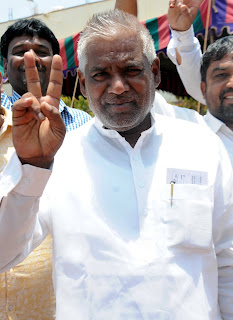War of 1857
But did you know the War of 1857 ended with Jung Bahadur in Bhalki in Bidar district?
Here is story.
Bidar has its own place in the country’s first war of independence. Unfortunately, the common man knows very little about it.
The war of 1857, also knows as the Sepoy Mutiny, was kicked off by a soldier, Mangal Pandey, disobeying orders of his British senior officer and shooting him dead. Historians believe the war came to end, with the arrest of a follower of Tatya Tope in Bhalki in Bidar district in 1867.
Madho Rao alias Rama Rao was the nephew of Shirmant Shahu Chatrapati, the Maharaja of Satara. He was also known as Jung Bahadur, because of his prowess in battle.
British military officer and historian Sir Richard Temple has referred to Jung Bahadur in his dairy. Details about Jung Bahadur’s life and achievements are also found in the book “The Freedom Struggle in Hyderabad”, published by the expert committee appointed by the Andhra government for compilation of a history of the freedom movement in the erstwhile Nizam state of Hyderabad, in 1956.
According to the book, Jung Bahadur had caused enough damage to the British government before being arrested. He had raised an army of over 1500 people in and around the forests of Bhalki. His forces had captured a cantonment area called Ashti in Bidar district. The Nizam of Hyderabad, who was an agent of the British, arrested him and tried him for “trying to bring about insurrection against the empire”.
Jung Bahadur went about recruiting soldiers in the villages and issuing them “Kaulnamas” or appointment letters. In the letter, he asked young men to join him in the task of “murdering the British and regaining the lost glory of the Royal family of Satara”.
Jung Bahadur and his followers moved on foot from village to village, disguised as mendicants. They were arrested by two officers of the British resident. Their trial however, was conducted by the Nizam’s courts. Magistrate of the criminal court Moulvi Nasrullah Khan completed the trial in less than a month.
Jung Bahadur, Bheem Rao, Balakishtayya and Vithoba were sentenced to transportation to life. Jung Bahadur is said to have spent his last days in the Hyderabad prison, where he died.
His followers Yeshwanta and Jehangir Ali were sentenced to 14 years of imprisonment. Others like Eshwanna Naikwadi and Vir Peddappa were given minor punishments.
Historians feel the country has forgotten its proud son, Jung Bahadur.
“Bidar has a pride of place in India’s freedom struggle. Eminent historians have commented that “It would thus be not incorrect to say that the Bhalki conspiracy case was the last echo of the outbreak of 1857”. The book “The freedom struggle in Hyderabad,” says that the conspiracy, is a milestone in the country’s war to liberation, says retired professor B R Konda.
“Actually, Jung Bahadur should have been as famous as Mangal Pandey. But his name does not figure in history textbooks. This is because writers of history books are and textbook selection committees tend to concentrate on events within the geographical boundaries of Karnataka. They do not seem to think about areas that were part of it before state reorganization”, says M Ahmed, who retired as a history professor.
Some interesting facts:
Jung Bahadur spent just Rs 20,000 for raising an army and carrying out the rebellion.
A Jamadar got a monthly salary of Rs 40, a Sepoy Rs 30 and a Sawar Rs 10.
Jung Bahadur gave Rs 200 to his follower Deva Rao, to recruit 500 “soldiers”.
One of the most serious charges the Nizam’s government made against him was that he was claiming to be the Prince of Satara.
When searched the officials discovered that Jung Bahadur carried, 1) several papers in English and Marathi, translation of a deed of agreement and a seal saying he was the “Chatrapati of Satara”. This, according to the Nizam’s officials, amounted to a serious offence.

Comments
Please go through my blog on 1857 rare collection on first war of indepedance
n comment me
http://www.1857warmemories.blogspot.com/
R. Prashant
Your article is very interesting and informative.
Are you a historian?